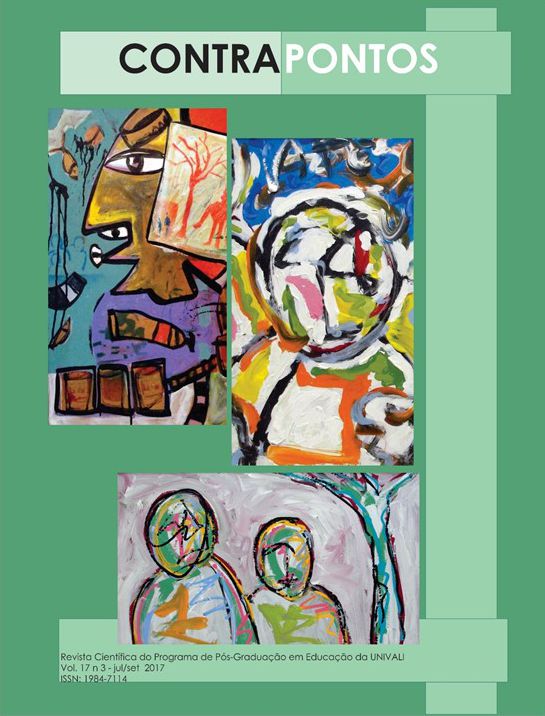CURRICULAR ADVANCES IN INITIAL TEACHER TRAINING
DOI:
https://doi.org/10.14210/contrapontos.v17n3.p529-551Keywords:
Teacher Initial Training, Curriculum innovation, Undergraduate Courses.Abstract
The questions that arise for Brazilian basic education have focused on initial training courses for teachers, suggesting a resignification of knowledge and practices used in these courses. An understanding begins to emerge that the interventions that enable innovation in training courses involve a search for new curricular approaches that break with the traditional curricular paradigm. This study reflects on the critical analysis of an alternative curricular organization that is currently in operation in the Undergraduate course of the Universidade Federal do Paraná-Litoral. Its goal is to investigate the extent to which the proposal that has been developed in this institution brings elements with the potential to contribute to a new curricular paradigm in initial teacher training. In terms of methodological approach, an exploratory study was adopted, with a qualitative approach. For the data collection, priority was given to the documentary analysis. The results indicate that the curriculum currently in operation brings new dimensions to the field of theory and curricular practices of initial teacher education programs. By putting into action the principles of an emancipatory education, and a pedagogical proposal based on projects, the curriculum breaks with the disciplinary technical paradigm and identifies itself with the critical and post-critical curricular theories, and with the integrated curriculum approach. The nature of the curriculum as construction in movement, making a way for the collective intelligence of educators in their institutional contexts to find room for diversification and innovation, places before us the possibility of a new paradigm in process.
Downloads
Published
Issue
Section
License
Upon acceptance of an article, the author gives full rights of the work to Contrapontos., but retains the authorship. The published work is considered collaboration. Thus, its author will not get paid nor will s/he be charged by Contrapontos. The responsibility of the article solely goes to the authors. Citations and transcriptions are allowed by mentioning the sources.
Â

This work is licensed under a Creative Commons Attribution 4.0 International License.

